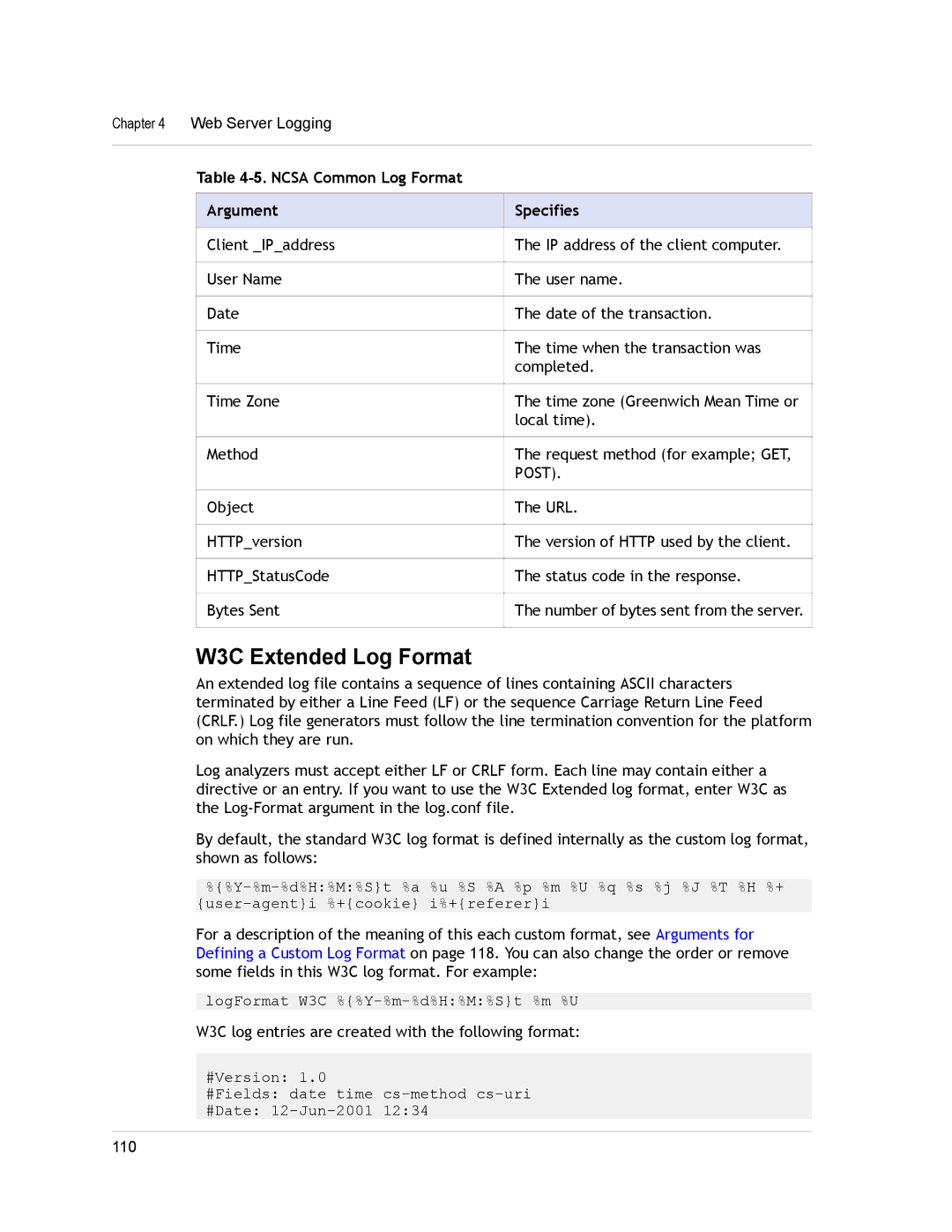
Chapter 4 Web Server Logging
Table 4-5. NCSA Common Log Format
Argument | Specifies |
|
|
Client _IP_address | The IP address of the client computer. |
|
|
User Name | The user name. |
|
|
Date | The date of the transaction. |
|
|
Time | The time when the transaction was |
| completed. |
|
|
Time Zone | The time zone (Greenwich Mean Time or |
| local time). |
|
|
Method | The request method (for example; GET, |
| POST). |
|
|
Object | The URL. |
|
|
HTTP_version | The version of HTTP used by the client. |
|
|
HTTP_StatusCode | The status code in the response. |
|
|
Bytes Sent | The number of bytes sent from the server. |
|
|
W3C Extended Log Format
An extended log file contains a sequence of lines containing ASCII characters terminated by either a Line Feed (LF) or the sequence Carriage Return Line Feed (CRLF.) Log file generators must follow the line termination convention for the platform on which they are run.
Log analyzers must accept either LF or CRLF form. Each line may contain either a directive or an entry. If you want to use the W3C Extended log format, enter W3C as the
By default, the standard W3C log format is defined internally as the custom log format, shown as follows:
For a description of the meaning of this each custom format, see Arguments for Defining a Custom Log Format on page 118. You can also change the order or remove some fields in this W3C log format. For example:
logFormat W3C
W3C log entries are created with the following format:
#Version: 1.0
#Fields: date time
#Date:
110
